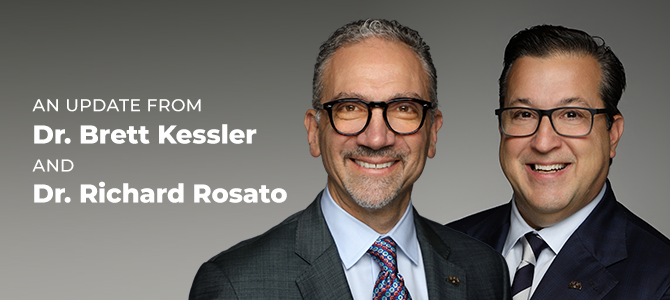ADA Board implements $20 million in cuts from 2025 budget
Reductions include elimination of programs, volunteer expenses, staff

The ADA is carrying out more than $20 million in expense reductions, as indicated by the 2025 budget. The Board of Trustees approved the new budget in July, amid months of discussions over how to recover from years of deficit spending and investments.
The changes include cuts to numerous ADA programs, a reduction in staff, changes to various outreach strategies and reducing operational and volunteer expenses. Funding to support the Large Group/Multi-site Practice Engagement Task Force, additional advocacy for the Dentist and Dental Hygienist Compact and the launch of the AFI Certified program has been discontinued, among a number of other shifts.
These decisions come after the ADA spent $142 million from its reserve funds between March 2022 and March 2025 to support “critical upgrades to organizational systems, strengthen advocacy efforts and address other key priorities,” according to an email sent by the ADA Board July 10. Of that amount, $53 million was allocated to a new association management system, which supports member service across the ADA tripartite.
“These strategic initiatives were designed to help modernize and grow the Association; however, the Board acknowledges that implementing large-scale changes very quickly has placed unintended financial strain on the ADA,” ADA President Brett Kessler, D.D.S. said. “The Board is working toward achieving a balanced budget in the long term, and the 2025 budget cuts are a necessary step in that direction.”
“The ADA maintains its commitment on our members and profession amid the Board’s consideration of the new budget and cost-saving measures,” President-elect Richard J. Rosato, D.M.D., said. “This financial realignment positions us to sharpen our focus on science, education, practice, advocacy, and membership.”
In an Aug. 7 open letter to members, Dr. Kessler and Dr. Rosato offered an overview of significant cuts. They include the following:
ADA Board and council
• Reductions in trustee-related expenses, including moving the November 2025 meeting and new trustee orientation to virtual.
•Reducing the number of in-person council meetings to one. All other meetings will be virtual.
Member-facing programs
• Starting in 2026, live continuing education events will be offered only at future annual scientific sessions, though online CE will remain.
• The Leadership Institute and the Advisory Committee on Equity, Inclusion, and Interprofessional Relationships are suspended.
Advocacy
• Discontinuing funding to support additional advocacy for the Dentist and Dental Hygienist Compact. States that have already received State Public Affairs grants for DDH enactment will continue to be supported. ADA state government affairs staff will assist state efforts to adopt the DDH Compact where requested.
• Suspending engagement with the National Conference of State Legislatures, which assists state policymakers in developing legislative measures.
Previously planned initiatives
• The AFI Certified Program, which was slated to launch this fall, will not move forward. The program would have validated select professional-grade products, materials and equipment for their safety and efficacy.
• The ADA Loyalty Program is no longer in development. This program was designed to reward member engagement with points.
• Investments in new product development and the work of the Innovation Advisory Committee have been suspended.
Profession-focused activities
• Plans for expanding the Dental Experience and Research Exchange have been scaled back.
Education
• Funding for the Faculty Ambassador program will be reduced.
•The ADA Success Program will move from in-person to virtual.
DSO/large group practice engagement
• Further strategic engagement with DSOs and large-group, multi-site practice organizations will be concentrated under the Council on Membership’s duties and responsibilities. Additionally, the work of the Large Group/Multi-site Practice Engagement Task Force has concluded.
ADA operations
• Cuts to marketing costs as well as consultant and agency expenses.
• Limited ADA presence at dental conferences and industry events.
• A reduction in ADA staff, including currently held roles and open positions that will not be filled.



